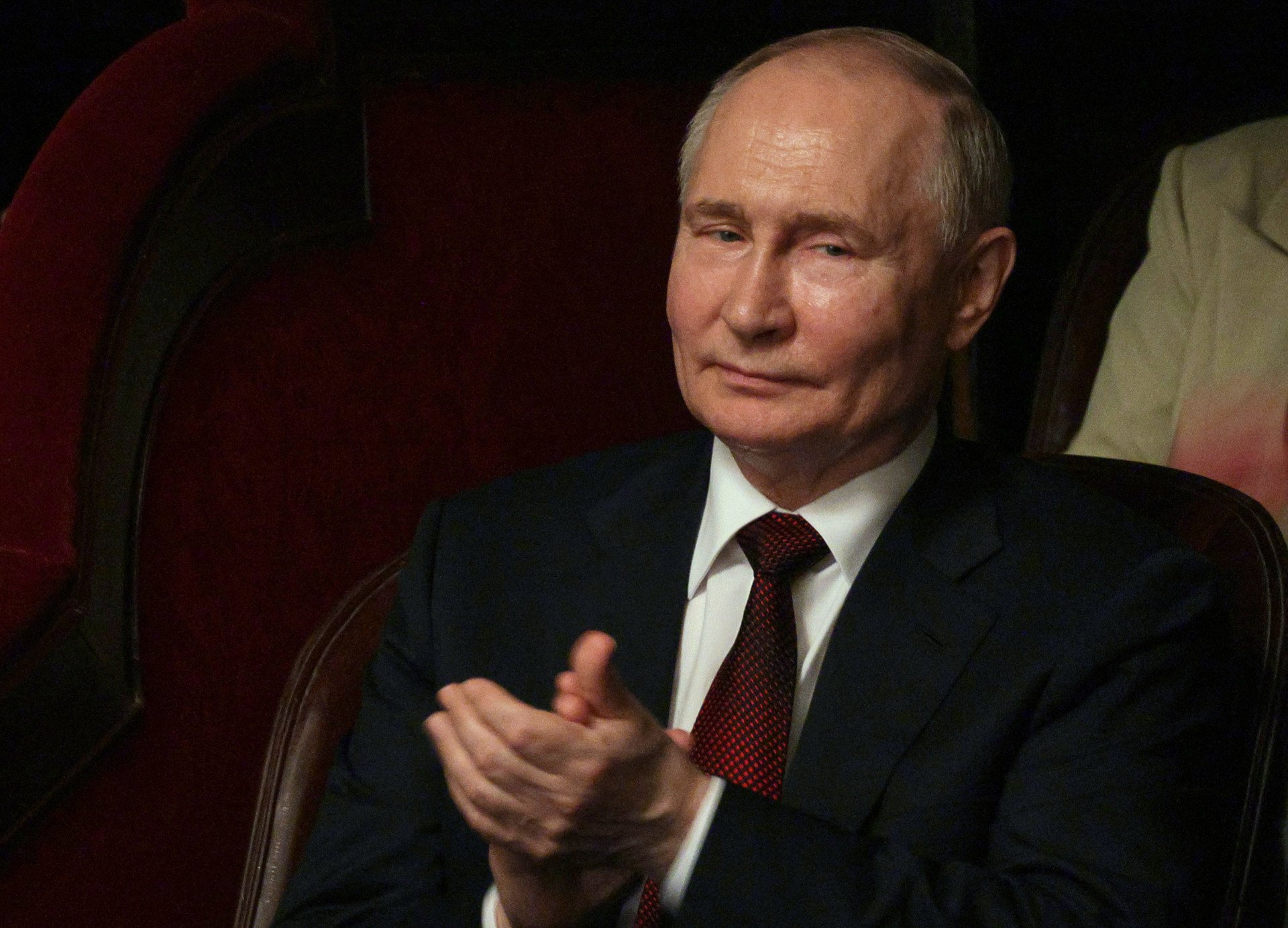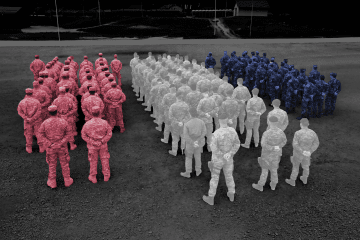- Category
- World
What It Means to Be a State Sponsor of Terrorism—and Why the US Hasn’t Labeled Russia One (Yet)

The Biden administration has prioritized sanctions over labeling Russia as a state sponsor of terrorism. But what does this designation really mean, and why do so many in Ukraine and the West demand it?
The slogan “Russia is a Terrorist State” has resonated globally since Russia’s full-scale invasion of Ukraine in 2022. This phrase, seen in protests and on social media, is more than a banal expression of outrage.
It’s a demand for diplomatic action: a call for the United States to officially designate Russia as a state sponsor of terrorism. Such a designation carries profound symbolic and practical consequences, isolating Russia and placing it alongside other pariah states such as Cuba, North Korea, Iran, and Syria—nations with which Russia already shares close alliances and cooperative ties.
US Senators are pushing to designate Russia as a state sponsor of terrorism after Putin's agreement with North Korea. What does this mean?https://t.co/egZKW0zsqN
— UNITED24 Media (@United24media) June 24, 2024
What is a state sponsor of terrorism?
The term "state sponsor of terrorism" was formally established in 1979 under the Carter administration as a response to the growing use of state-backed terrorism, particularly in the Middle East.
They were heavily influenced by the actions of Iran following the 1979 Islamic Revolution. The overthrow of the Shah and the establishment of the Islamic Republic marked a seismic shift in geopolitics, with Iran emerging as a major state sponsor of terrorism.
The regime's backing of groups like Hezbollah in Lebanon and other militant organizations in the Middle East posed a significant threat to US interests and its allies, particularly Israel.
Codified through laws like the Export Administration Act and the Foreign Assistance Act, it provided a legal framework to sanction regimes supporting terrorism.
Initially applied to Syria, it served both as a punitive measure and a diplomatic signal, isolating violators while asserting moral and strategic opposition to state-sponsored violence.
Under US law, a state sponsor of terrorism is defined as a nation that has repeatedly provided support for acts of international terrorism. This designation, determined by the Secretary of State, activates a package of punitive measures:
A ban on arms sales
Restrictions on exports
The termination of foreign aid
Diplomatic isolation, amplifying the nation’s pariah status on the global stage
Economic isolation, including blocked loans and restricted trade
The effects of this designation are far-reaching. Beyond sanctions, it serves as a clear statement of condemnation, marking the designated state as a persistent violator of international norms and human rights.
This dual impact—economic and symbolic—makes the designation a powerful tool for addressing egregious state behavior by cutting them off from the civilized world. Think of it as the ultimate geopolitical block button: no trade, no deals, no allies.
On This Day: European Parliament Declares Russia a State Sponsor of Terrorism.
— UNITED24 Media (@United24media) November 23, 2023
November 23, 2023 marks one year since the European Parliament took a historic step in recognizing Russia as a state sponsor of terrorism.
#RussiaIsATerroristState pic.twitter.com/0A6HRJrrIb
Does Russia meet the criteria?
Russia’s actions in Ukraine, including deliberate attacks on civilians and critical infrastructure, as well as the use of paramilitary groups like Wagner PMC, align closely with the definition of state-sponsored terrorism. The widespread targeting of civilian areas through missile strikes and other terror tactics highlights a calculated pattern of violence.
Their close ties with state sponsors of terrorism, such as Iran, Syria, and North Korea, significantly bolster the argument for its designation as a state sponsor of terrorism. These alliances are not merely transactional, as Russia materially supports these countries in their goals to undermine Western hegemony.
In Iran, Moscow shares military technology and expertise, bolstering Tehran’s missile and drone capabilities, which in turn supply Russia’s assault on Ukraine and strengthen regional proxies like Hezbollah.
In Syria, Russia has sustained the Assad regime through weapons and airpower, enabling atrocities against civilians and aligning with a government long designated as a state sponsor of terrorism.
Meanwhile, its reciprocal ties with North Korea involve weapon supplies, shared military knowledge, and support for Pyongyang’s missile advancements, undermining international sanctions.
These partnerships leave no doubt to many observers that Russia isn’t just along for the ride in global terrorism—it’s playing an active role, benefiting from these alliances while actively contributing to the instability and chaos they create.
“Well, this is complete bullshit. Sorry, but really,” Zelenskyy on imposing sanctions only after Russia invaded Ukraine.
— UNITED24 Media (@United24media) January 5, 2025
“We didn’t receive help. If we assume that words are help, well, then yes, we received a lot of it, because there were plenty of words.” pic.twitter.com/Etc66o7DSV
How does this differ from sanctions?
While sanctions have been central to the Biden administration’s efforts to weaken Russia economically, they don’t carry the same sweeping legal and symbolic weight as the state sponsor of terrorism designation.
Sanctions tend to focus on isolating specific economic sectors or individuals from the global financial system, while a designation as a terrorist state isolates the entire nation, branding it as an international outcast. It imposes stricter restrictions, halts cooperation, and sends a definitive and crippling message to the recipient.
⚡️ Trump’s team is debating sanctions against Russia—either easing them to push for peace talks or intensifying them for leverage, Bloomberg reports. https://t.co/q1J7mltxa6
— UNITED24 Media (@United24media) January 16, 2025
Why hasn’t the US acted?
The hesitation to label Russia as a state sponsor of terrorism (SST) largely stems from the Biden administration’s belief that sanctions are a more effective tool to achieve political goals against the Putin regime.
“We do not consider this [SST] to be the most effective way to achieve the current policy goals when we talk about Russia,” State Department spokesman Matthew Miller explained during a press briefing on January 17, 2024, later emphasizing the practical consequences of existing US sanctions.
Miller pointed to recent restrictions on Russia’s energy sector, highlighting media reports of oil tankers carrying Russian crude stalling off global coasts, including near China. He noted that the latest sanctions packages have further “tightened the screws”, limiting Russia’s ability to circumvent previous sanctions.
“These are just the effects of the last package,” he stated, underscoring that the cumulative impact of sanctions and export controls outpaces what a state sponsor of terrorism designation would achieve.
The State Department has also raised concerns about unintended consequences of the SST label, including limitations on international humanitarian organizations operating in the region. Miller stressed that such a move could disrupt aid efforts, creating challenges for critical assistance in areas affected by Russia’s war, including occupied Ukraine.
While the administration defends its decision, critics argue that the moral and symbolic weight of designating Russia as a state sponsor of terrorism outweighs these concerns – let alone the impact on the Russian war machine that's intrinsically tied to the export of natural resources.


-206008aed5f329e86c52788e3e423f23.jpg)

-605be766de04ba3d21b67fb76a76786a.jpg)
-27ef304a0bfb28cb4215e5deede4a665.png)
-46f6afa2f66d31ff3df8ea1a8f5524ec.jpg)
